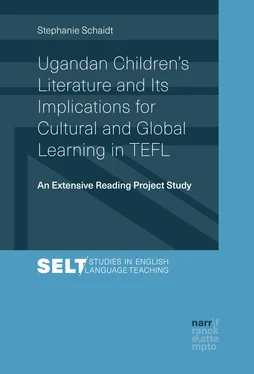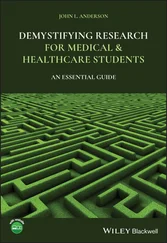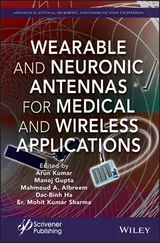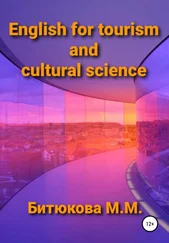Since I draw on scholarship in my study that engages with anti-colonial critique and repeatedly talks of an African counter-discourse, I do not see a way out of this dilemma and occasionally make use of the terms ‘African’ and ‘African literature’ as well. The same issue of being both problematic and inevitable applies to the term ‘Western’. Similarly to ‘African’, this term may evoke essentialising concepts of culture; as a counter-concept to ‘African’ it cannot, however, be avoided in my study.
In addition to this, the colour adjectives Black and white necessitate reflection. Referring to a person or groups of people, they must not be understood as biological or personal features but as historical and sociopolitical categorories in my study. In order to accentuate the constructedness of these terms, I put the term white into italics and capitalise Black, as it serves as an emancipatory self-denomination (see Marmer & Sow, 2015a, p. 7). In students’ quotes taken from the questionnaires, reading diaries and interviews, these adjectives are, however, not marked in this way to avoid altering their meaning.
Furthermore, certain terms with respect to foreign language didactics need clarification in my study. It is important to recognise that terminology in the scholarship of first, second and/or foreign language acquisition/learning is not consistent. The first language a child learns is interchangeably referred to as first language (L1), primary language, mother tongue or native language in the respective contributions. Concerning other languages that are learnt after the L1, a few linguists differentiate between second language (L2) acquisition and foreign language learning (e.g. Quirk & Greenbaum, 1972) whereas the majority of scholars use second language acquisition as an umbrella term to cover the learning of all languages different from the L1. When a difference between second language acquisition and foreign language learning is made, the former refers to the learning of a non-native language in the environment in which it is spoken (e.g. learning English in the UK, USA and Australia), whereas the latter refers to the learning of a non-native language not spoken by the surrounding community and primarily learnt in the classroom, for example when English is learnt in Germany (Ellis, 1994, pp. 11–12; Gass & Selinker, 2001, p. 5). Since the term ‘English as a second language’ is also commonly applied to the English spoken in Uganda (see Kachru, 1986), I consider the differentiation between second language and foreign language to be important in my study, while acknowledging that the distinctions are usually not clear-cut. At times, however, I also quote sources in which scholars use second language acquisition and second language as generic terms.
Now that the focus of this research has been introduced and important terms reflected upon, I wish to provide an outline of the present study. The thesis is divided into ten chapters. Chapter 1 is concerned with an introduction to the role of culture in the EFL classroom and offers an overview of the objectives of the present study. Chapter 2 critically discusses relevant concepts and developments in the fields of cultural and global learning. Chapter 3 provides insights into literary didactics in the EFL classroom. Particular focus is placed on the use of children’s fiction at lower and intermediate levels of secondary school and extensive reading in this context. The fourth chapter is devoted to the literary basis of my study, Ugandan children’s literature. Selected genres, topics and titles are analysed and their relevance for the present study is pointed out. Chapter 6 and 7 present the research findings of my study. While Chapter 6 focuses on individual cases, Chapter 7 develops a thematic structure across cases. Chapter 8 discusses the research findings and suggests implications for TEFL. In the ninth chapter, I reflect upon my research design and methodology in the retrospective and in Chapter 10 the findings of my study are finally summarised, critically reflected and suggestions for future studies are made.
2 Relevant Concepts and Developments in the Fields of Cultural and Global Learning
Over the last two centuries, the significance of teaching language in relation to its culture(s) has been recognised and widely discussed in Germany. Under the influence of reference disciplines, the concept of culture was redefined and didactic approaches developed further. Many different terms have been coined to refer to approaches of teaching and learning about culture(s) in the foreign language classroom.
This chapter intends to give an overview of theoretical discourses in foreign language didactics and reference disciplines (e.g. pedagogy, postmodern philosophy and postcolonial studies) with regard to cultural and global learning. Important concepts and developments in the field of teaching and learning about cultural aspects and global topics in the foreign language classroom in Germany are explained and their impact for the present study is discussed.
2.1 Discussions on Landeskunde
For a very long time in FLT history in Germany, cultural learning approaches focused on the study of national cultures. In the late 19 thcentury and early 20 thcentury, teaching approaches put their emphasis on the investigation of concrete content and real objects ( Realienkunde ). From the 1920s, this fact-oriented, positivistic concept evolved into a more nationalist approach which focalised the understanding of the national culture of the countries of the target language ( Kulturkunde ) : “Culture was set apart from the social realia and mystified as a people’s soul and character as expressed in their philosophy, arts and literature” (Buttjes, 1991a, p. 55). The underlying intention was to strengthen the German national identity (see Sommer, 2003, p. 19). With its tendency to generalise, the concept of Kulturkunde was prone to creating stereotypes and presenting a simplistic image of the target culture (Steinbrügge, 2005). Thus, it was only a small step that Kulturkunde was ideologically instrumentalised during the so called ‘Third Reich ’. The Nazis used the study of national mentality ( Wesenskunde ) and the degradation of ‘the other’ to justify their own claim of cultural superiority (Lüsebrink, 2007, p. 61).
After 1945, a break with this Wesenskunde was desired and a depoliticisation of the foreign language classroom was strived for. However, the legacy of Kulturkunde continued to prevail. This concept influenced the foreign language classroom until the 1960s (Buttjes, 1995, p. 144). Now literary works were taken as the most important expressions of national culture: “After the experience of the failure of Kulturkunde and in the emerging intellectual climates of the Cold War and of New Criticism, literature rather than culture was taught in most foreign language classes” (Buttjes, 1991a, p. 57).
In the late 1960s and 1970s, against the backdrop of educational reforms, the student movement and an increasing politicisation of society, teaching about cultures in the foreign language classroom experienced fundamental changes. The term Landeskunde [area studies/regional studies/background studies] was introduced to refer to culture teaching in the foreign language classroom in Germany and various approaches with different foci developed. With the introduction of TEFL as an obligatory subject at the secondary technical school level ( Realschule and Hauptschule )1 in 1964/65 (Klippel, 2007), a more practice-oriented approach to teaching about cultures was pursued. The focus shifted to the “actual language learning process” (Buttjes, 1991a, p. 58) and contents were chosen accordingly. Thus, students were prepared for basic interaction in the contexts of travelling and consuming in the foreign language classroom. The communicative turn in the 1970s, which gave rise to communicative competence as the major aim of FLT, contributed to the development of this rather pragmatic, communicative-oriented approach to Landeskunde. Increasingly, however, scholars warned against a Landeskunde approach which reduces cultural contents to the fields of tourism and consumerism and pleaded for a stronger political orientation in FLT. Socio-critical and political perspectives and critical reflections of clichés and stereotypes increasingly found their way into the foreign language classroom during that time (Buttjes, 1981; Fischer-Wollpert, 1968; Keiner & Köhring, 1982; Köhring, 1981; Markmann, 1986; Raasch, 1983; Schüle, 1983).
Читать дальше












